Farming, an industry that requires both late nights and early mornings, is subject to diversification throughout the year. It can dramatically alter what types of waste farms have to manage and what they produce to sell.
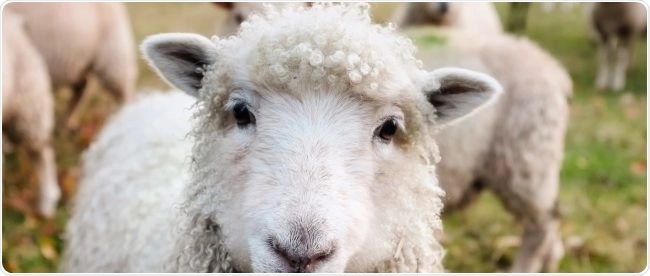
Image Credit: Inciner8 Limited
This can impact how secure the farm is from a biosecurity standpoint as well as producing more challenges from a management perspective.
Within the world of farming, there is an endless number of sectors; this article will explore a few of the most important ones regarding waste disposal challenges.
Livestock – Lambing season
The start of spring marks when lambing season truly begins and farmers prepare for more than 15 million ewes giving birth. Lambing season lets everyone know that spring is on its way and represents the end of the long winter months.
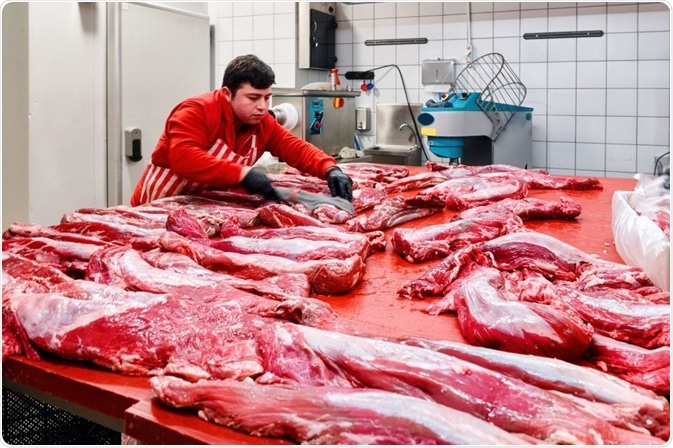
Image Credit: Inciner8 Limited
It is also the opportunity for farms to significantly increase their numbers and revenue; therefore, it has huge financial implications for a farm’s profitability. This means it is important to minimize financial loss as much as possible by managing the risks.
It is in this regard that using a sheep/lamb incinerator to increase biosecurity becomes a critical step for securing the farm’s assets.
Livestock – Fallen stock
The amount of livestock held in UK farms means that, unfortunately, animals become ill or are killed due to external causes, referred to as ‘fallen stock.’ Within the UK, fallen stock numbers are considerable, and it is one of the biggest financial losses farmers face every year. However, farmers can limit their losses by putting procedures into place.
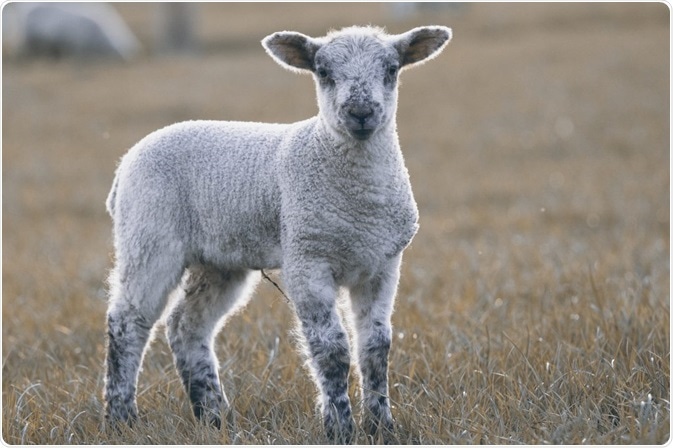
Image Credit: Inciner8 Limited
In the UK, it is estimated that more than 40 million farm animals die each year before reaching the slaughterhouse, making this a key area to examine from a biosecurity standpoint.
In order to limit any further risks to the farm’s livestock, all of these animals have to be disposed of efficiently and quickly – this is where fallen stock incinerators come in to greatly increase biosecurity while also dramatically reducing costs in cases where a farm is presently using external companies to manage their fallen stock.
Game and hunt
Game hunting, or hunting wild animals for their meat, is still a popular sport within the UK. Hunted game primarily consists of birds, such as pheasants, or animals like deer. UK law stipulates that hunters must only kill what animals they will use, meaning that there should be zero waste.
Unfortunately, due to a range of factors, this is not always the case and there is usually at least some waste. Due to the nature of wild animals, they carry a higher risk for diseases and therefore need to be dealt with to eliminate potential outbreaks, making biosecurity a particular area of interest within this sector.
Again, this is where incineration factors in, as it can quickly destroy the unusable game or hunt waste in a safe and controlled manner, leaving organic ash that can be disposed of easily due to its non-hazardous nature.
Biosecurity
Biosecurity is a crucial aspect that every farm considers. ‘Biosecurity’ refers to measures aimed at preventing the introduction or spread of potentially harmful viruses or diseases to plants and animals.
A robust considered waste plan is key to minimizing the risk of infectious disease transmission. While it will never be possible to completely eliminate these issues, the chances of unwanted outbreaks can be massively reduced by putting procedures in place.
One possible procedure farms can use is to choose an incinerator to destroy waste safely and quickly. Destroying fallen stock and other waste immediately onsite keeps the farm as secure as possible by limiting the chances of diseases spreading.
General farming waste
Farming creates a wide range of waste, including the containers and packaging* from fertilizers and vitamins used for livestock and crops, perished crops, and animal by-products. All of this waste needs to be managed properly and disposed of. Normally, this is done using a landfill or via an external company, costing a significant amount each month.
An increased number of farms are now investing in onsite incinerators to perform these tasks, allowing them to reduce waste more quickly while also saving huge amounts of money simultaneously.
*If you plan to incinerate anything other than animal by products (ABP) In the UK or EU you will need to apply for a permit in most cases. Please check with your local authority.
Abattoirs and slaughterhouses
1.2 billion animals are killed every year in abattoirs and slaughterhouses in the UK. The UK, as a nation, loves meat: 87% of people in the UK eat meat as part of their normal diet, which roughly equates to 57 million people regularly consuming meat.
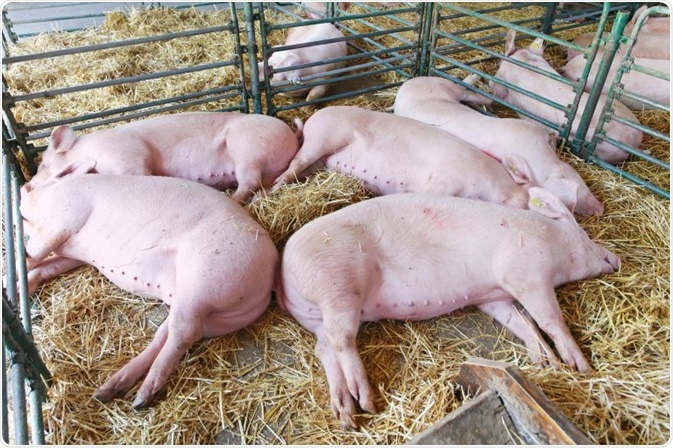
Image Credit: Inciner8 Limited
The impact of this is that 1.2 billion animal carcasses need to be properly dealt with every year. Some of these carcasses get reused or repurposed, but many require a disposal method.
As a removal method, incineration massively reduces the overall mass of the remaining carcasses and eliminates the risk of disease outbreaks. The incineration process will leave an average of just 3-10% of the original weight and overall mass of waste in the form of a completely organic innate ash, which can then be used in a variety of ways.
The benefits of an onsite incinerator on your farm
The sectors listed above are just some that benefit from the use of incineration, but there are countless other benefits to having an onsite incinerator, such as being available at any time to tackle biosecurity issues or deal with the day to day waste* within the agriculture and farming industry.
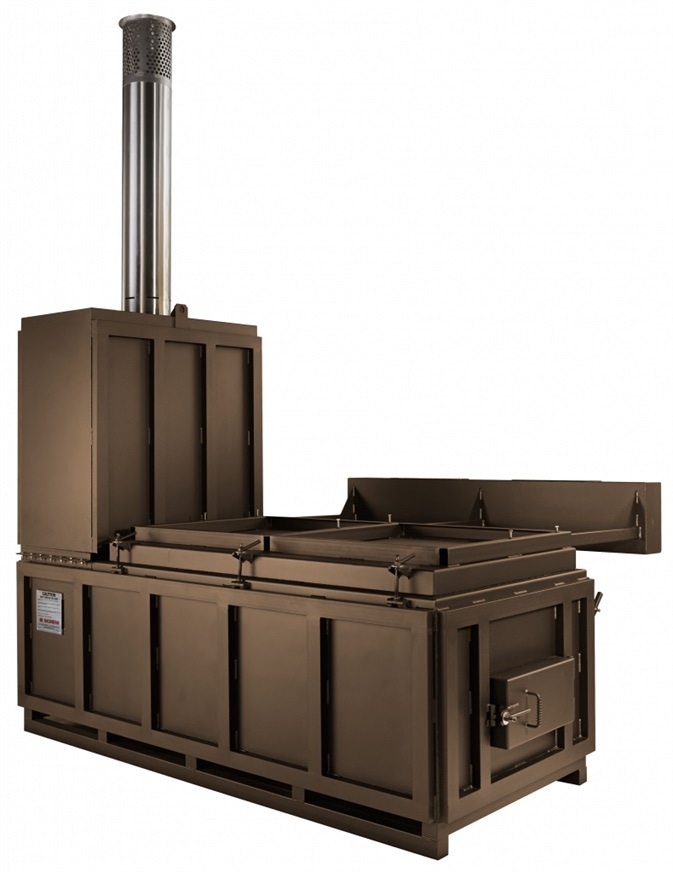
Image Credit: Inciner8 Limited
Buying an incinerator is a long-term investment that not only protects a farm but also saves money. Fallen stock collection prices are reaching all-time highs, making now a perfect time to consider if an incinerator is the right choice for your farm.
About Inciner8 Limited

Inciner8 are a globally respected manufacturing organisation offering a range of Incinerators for all applications in the waste management industry, our products are specifically designed with clean air incineration at the forefront of our product development for Medical, Animal by product and General Municipal waste streams.
After many years in the industry with a track record second to none we have become the company that existing and new clients from around the world come to for their incineration solutions
On top of supplying a range of standard models we have developed a bespoke service for specialist markets and requirements thus ensuring we cater for the needs of this growing industry.
Environmental awareness is always a factor in waste management, inciner8 realise the importance of this and continue to demonstrate full commitment in striving to understand and deliver solutions based on individual country regulations and standards, this has been recently enhanced by our range of products specifically launched to provide an extensive range of pollution control systems and heat recovery options.
Inciner8 - Corporate Intro
We are very proud of our company and Brand, our continued focus is to ensure we enhance that position on a global basis with new product development, listening to our clients as part of that process and communicating consistently in every aspect of our daily activity to keep our valued clients abreast of market changes and future developments from Inciner8.
Being a global leader comes with great responsibility, we value feedback as we continue daily to educate our people to ensure they give the most authoritive and educational information to our clients, which is why we employ highly skilled technicians and thermal treatment experts to support all of our client requirements in the decision making process in sourcing environmentally friendly quality products from Inciner8.
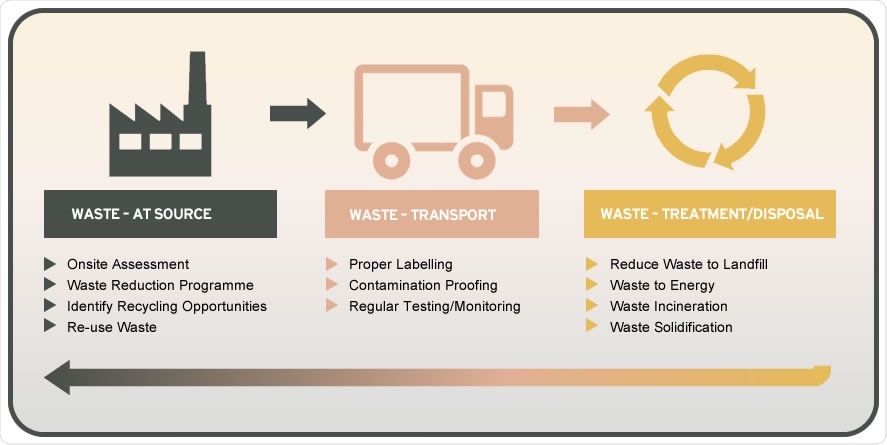
Sponsored Content Policy: News-Medical.net publishes articles and related content that may be derived from sources where we have existing commercial relationships, provided such content adds value to the core editorial ethos of News-Medical.Net which is to educate and inform site visitors interested in medical research, science, medical devices and treatments.